Nobody sticks to their diet perfectly year-round. Yes, to become lean, strong, and muscular, one needs to ingest a specific amount of nutritious foods based on their current body fat percentage, muscle mass, and goals, but that doesn’t mean burgers, pizza, and even beer are permanently off the table.
Even the leanest and largest people on the planet have what are known as “cheat meals” — aka a dietary free-for-all where a person following a strict eating plan indulges in what they want (aside from the best-tasting protein powders, which we have to say can indeed feel indulgent).
Here’s the thing, though: the concept of cheat meals is a tad dated, and there may be a better way to think about eating off of your diet plan (or dieting in general). I consulted with registered dietitians to define “cheat meals,” explain what happens to your body on a physiological level when you indulge, and the potential benefits and disadvantages of cheat meals.
Key Takeaways
- Cheat meals typically consist of more carbs and calories and are used as a way to briefly eat foods that are “prohibited” during a strict diet.
- Cheat meals are consumed in hopes of increasing metabolism and preventing muscle loss during a restrictive diet.
- Research shows that a short-term carb overload can increase leptin production by nearly 30% for 24 hours, which may lead to a temporary increase in metabolism. (1)
- Downsides to cheat meals include sluggishness, gastrointestinal discomfort, like heartburn and bloating, and spikes in blood sugar.
- 50% of competitive physique athletes use cheat meals when preparing for competition. (2)(3)
What Are Cheat Meals?
Depending on why you’re following a strict eating plan in the first place, the term “cheat meal” might have different meanings.
According to registered dietitian Cassandra Padula Burke at Catalyst Performance Lab, a cheat meal is as simple as veering from your typical eating plan “to indulge in a high calorie meal as a reward to adhering to your plan.”
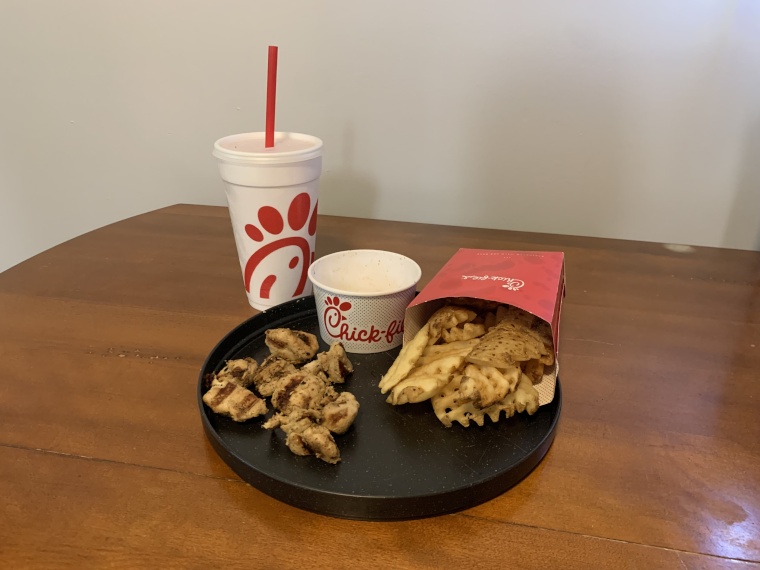
As a certified sports nutrition coach and personal trainer who works with the general population, I have to say I largely concur with Burke’s definition. Most people who are following diets are not bodybuilders or competitive athletes — they’re just people who think they need to eat in a certain, restrictive way to achieve some component of health. They may be dieting to lose weight or simply to be healthier, and a cheat meal is a reward for their hard work of sticking to the diet.
Physique athletes, i.e., bodybuilders, may have a slightly different definition of a cheat meal; they may even call it something different: a diet break or refeed. In this sense, a cheat meal has a supposed underlying purpose. While it is, indeed, an opportunity to eat whatever you want, in unlimited quantities, it’s done under the pretense that it will boost your metabolism and help you to prevent muscle loss while dieting.
Scientifically, a cheat meal has been defined as a meal in which one’s restrictive and meticulously calculated dietary regimen may be abandoned for a brief influx of “prohibited” foods without regard to quantity or macro/micronutrient composition. (4) Research indicates that up to 50% of competitive physique athletes use cheat meals when preparing for competition. (2)(3)
[Related: Refeed Day Vs. Cheat Meal]
How Cheat Meals (Are Supposed to) Work
The exact manner in which a cheat meal is supposed to benefit you depends entirely on why you’re having cheat meals in the first place.
A Psychological Release
As registered dietitian Catherine Gervacio puts it, “A cheat meal commonly involves indulgent foods that are high in calories, fats, sugars, or processed ingredients. It’s like a reward or break from a stricter diet, allowing for more freedom to enjoy favorite (mostly unhealthy) foods.”
Gervacio says that strict dieting can create severe feelings of deprivation, which often leads to cravings for “forbidden” — notably, forbidden is self-defined — foods.
“Cheat meals provide a psychological release, allowing people to temporarily indulge without guilt,” Gervacio, a dietitian with Living.Fit, says. “It can also be seen as a reward for sticking to a diet (which is good), but it can sometimes reinforce an unhealthy relationship with food — viewing it as a ‘treat’ or something to ‘earn.’”

For some people, implementing cheat meals at regular intervals can lead to longer-term diet adherence. In a perfect world, that would mean eating more nutrient-rich foods than nutrient-poor ones over the long haul. Unfortunately, that’s not usually how this ends up working out, which we’ll get to momentarily.
[Related: Best Clean Protein Powder]
A Physiological Boon — Maybe
If you’re an athlete (specifically a physique athlete), a cheat meal may have another application. The general idea is that inhaling a face full of food will boost your metabolism, improve appetite hormones, lower stress hormones, and help you retain muscle — all with the expectation that this will yield better dieting results when you return to dieting.
The primary theoretical mechanism behind cheat meals is leptin. Leptin is a hormone that regulates your appetite and energy expenditure. It gets released from fat cells, so the more fat you have, the more leptin you produce, leading to more calories burned and less hunger. (5)
Carbohydrates tend to increase leptin more than fat, so cheat meals, cheat days, refeeds, and diet breaks are probably more effective by primarily increasing carbohydrate intake (6). Some research has shown that, in response to a cheat meal, leptin levels increase significantly (1).
So what’s not to love about cheat meals? You eat fantastic food, kick-start your leptin, and then get shredded. Well, it’s not that simple in practice.
[Related: How to Count Macros]
The Downsides to Cheat Meals
If you thought a dietary free-for-all — when in pursuit of fat loss and/or health goals — seemed too good to be true, you’d be right.
Food Guilt and Binging
The cycle of strict dieting followed by cheat meals can lead to overeating during cheat times, which undermines progress, says Catherine Gervacio, RD. “It can also create an all-or-nothing mindset, where people become too restrictive, feel deprived, and then overindulge when given the chance. This yo-yo pattern can lead to weight fluctuations, disrupt metabolism, and affect mental well-being, fostering guilt and frustration.”
As Burke points out, such feelings of guilt can “promote an unhealthy relationship with food, which may increase the risk of developing an eating disorder.”
[Related: Bodybuilding & Muscle Dysmorphia]
Backfiring Weight Loss Goals
Plus, science doesn’t support the idea that indulging cravings by having a cheat meal can rejuvenate a dieter’s motivation to adhere to their nutrition plan. One study found that consuming a significant surplus increases appetite in subsequent days, rather than decreases the desire to indulge in those foods. (7)
Some people may struggle to return to their comparably bland diet after having a taste of hyper-palatable foods. Exposing oneself to highly palatable meals may cause several days of binging to occur before one returns to their typical eating pattern. If this happens to you, cheat meals are likely sabotaging your fat or weight loss goals.
Physiological Stress
Not to mention, overindulging leads to a number of uncomfortably physical symptoms.
“Eating past the point of fullness requires your digestive system to work overtime to digest the excess carbohydrates and fat by increasing insulin release to help manage the excess calories,” says Cassandra Padula Burke, RD. “Over time, consistent overindulging can lead to gut health issues by feeding harmful bacteria and causing inflammation of the gut lining which could lead to conditions such as irritable bowel syndrome (IBS) or inflammatory bowel disease (IBD).”
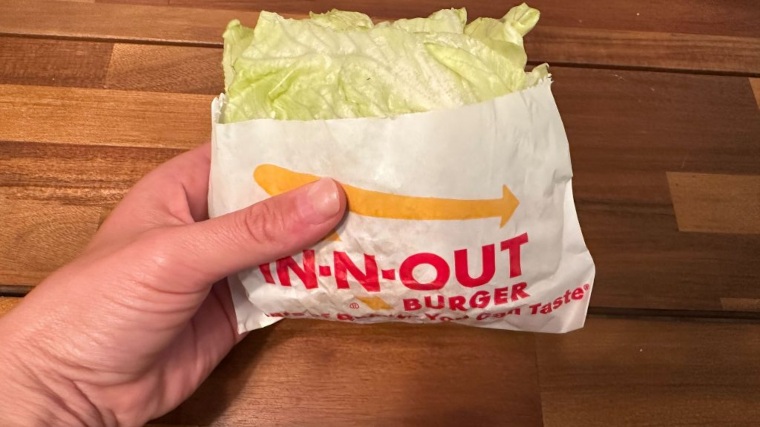
Even if those long-term effects weren’t possible, the short-term side effects of overeating are sufficiently uncomfy: bloating, gas, indigestion, acid reflux, and sluggishness can all occur as your body attempts to process a large quantity of food.
[Related: Intuitive Eating]
(Potential) Benefits of Cheat Meals
An influx of calories may set most people back, but there are some potential reasons to stray from your diet — when implemented with intelligence and purpose. In such cases, I’m less inclined to call it a “cheat meal” and more inclined to call it a refeed or purposeful nutrition strategy.
Improved Strength Training Quality
Another commonly held belief among gym rats is that cheat meals help you train harder as increased carbs boost muscle glycogen for enhanced performance. Therefore, it’s not uncommon for folks to eat a cheat meal before a hard training session, such as a heavy leg day or planned one-rep max.
Glycogen (carbohydrate stored in the muscles and liver) is a critical component of anaerobic metabolism, the energy pathway the body uses to produce short spurts of high-intensity activity — like a heavy deadlift double. (8) Research has shown that consuming carbs before resistance training can increase workload and reduce the perception of fatigue, all good things in the weight room. (9)
Still, stuffing your face with birthday cake probably isn’t the best approach. Not that there’s anything wrong (at all) with eating cake, but the aforementioned downsides to cheat meals — particularly indigestion and bloating — mean that a pre-workout cheat meal might backfire.
Improved Endurance Performance
Similarly, “carb-loading” is a common practice among endurance athletes. This is because it’s well-established that carbohydrate is the preferred fuel for endurance exercise, and low glycogen availability diminishes endurance performance. (10)
Eating lots of carbs before a particularly long or intense training session, or leading up to a race, can maximize glycogen stores and help you toe the start line as fueled as possible. But again, a better strategy is to avoid foods (or quantities of foods) that might result in gastrointestinal discomfort.
Lower Stress and Better Brain Function
Proponents of cheat meals often suggest that they reduce stress hormones such as cortisol. Another supposed benefit of cheat meals is an increase in cognitive function. An increase in focus that lessens mental strain when returning to the diet is widely cited as a reason to cheat by many coaches and athletes.
The research does not bear this out, though. It suggests the exact opposite. Firstly, fasting increases cortisol, but overall caloric restriction doesn’t. Dieting (in a reasonable manner) isn’t as physiologically stressful as many claim (11). As long as your diet doesn’t impact your sleep or appetite, your caloric intake largely doesn’t matter regarding stress hormones. (12)
There seems to be an exception to the research cited above when a person has been dieting for a long time and/or is very lean. Two case studies conducted by researchers on bodybuilders prepping for a show for six months reported increased cortisol levels. The participants in these studies dieted down to around 5% body fat (13)(14). While the subject’s cortisol levels increased, there is no evidence that a cheat meal would repair this. The fix would be to take a diet break (more on this below), increase calories above maintenance, and/or regain some body fat.
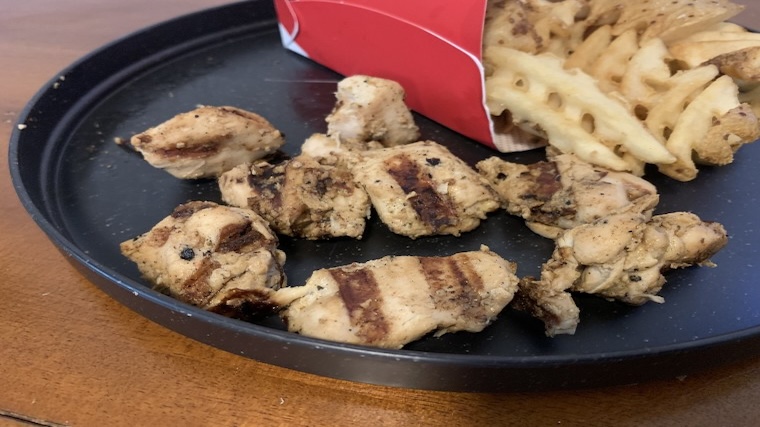
In other studies assessing brain function when dieting, they have reported no difference in hunger, fullness, brainpower, memory, mood, or reaction time in a variety of subjects (15)(16)(17). Fasting during Ramadan has also been shown to have no impact on brain function. Even soldiers undertaking strenuous training showed no difference in mood, mental performance, and reaction time when calories were somewhat restricted. (18)
Taken together, this research does not support the theory that dieting on a structured and consistent calorie deficit increases diet fatigue, stress, or brain function.
Increased Metabolism
Some research has suggested that short-term carb overload can increase leptin production by nearly 30% for 24 hours, which may lead to a temporary increase in metabolism. (1)
Unfortunately, the supposed benefits of a cheat meal likely do not outweigh the impact of having consumed a massive number of calories in a brief period. The surge in leptin after a cheat meal is only temporary. After an acute spike, levels quickly drop back to normal. This transient increase in leptin hasn’t been shown to meaningfully increase metabolic rate or decrease hunger signaling, though.
Meaningful and well-planned calorie cycling could have a beneficial effect, and is a smarter way to think about cheat meals. In the most basic sense, calorie cycling is intentionally eating fewer calories on some days and more on other days.
Some research has suggested that this type of dieting can preserve metabolism over time compared to continuous calorie restriction (19) However, more recent research reviewing the literature on this topic concluded that calorie cycling has similar effects to regular caloric restriction. (20)
Muscle Loss Prevention
Bodybuilders often employ cheat meals as a tool to prevent muscle loss during preparation for a physique competition. For these athletes, preserving as much muscle mass as possible, while losing as much body fat as possible, is quintessential. (And muscle mass loss is a known concern during periods of weight loss, especially in older adults). (21)
Some research does support the notion that increasing caloric intake, particularly via carbohydrates, can preserve lean mass in periods of calorie restriction. (22) There’s one big caveat though: These study participants engaged in planned, periodic refeeds with specified macros and calorie content, not free-for-all cheat meals with zero regard for the number of calories, carbs, or other factors.
[Related: What Is Muscle Atrophy?]
Different Cheat Approaches
Other than a singular cheat meal, there are other approaches that some people take in hopes of better results.
Cheat Days
Cheat days include a string of back-to-back cheat meals and result in a significantly higher than normal consumption of calories. Ordinarily, these extra calories come from carbohydrates and fat; and generally, a cheat day pushes calories significantly over maintenance needs.
Some athletes participate in full cheat days under the assumption that they’ll gain more energy, thus expend more energy (i.e., burn more calories) over the next few days. Research shows this isn’t true.
Even in healthy individuals, a 50% surplus refeed day doesn’t cause them to eat less the next day. (23) The body’s production of leptin adapts too quickly (within 12 hours), so temporarily eating more food in an attempt to trick the body into pumping out leptin long-term is a flawed strategy. (24)(25)
Refeeds
A refeed day is different from a cheat day in that it is typically meticulously planned. In other words, it’s not an “anything goes” day; instead, it’s a real nutrition strategy. Still, research as to whether it’s truly a beneficial approach isn’t very supportive.
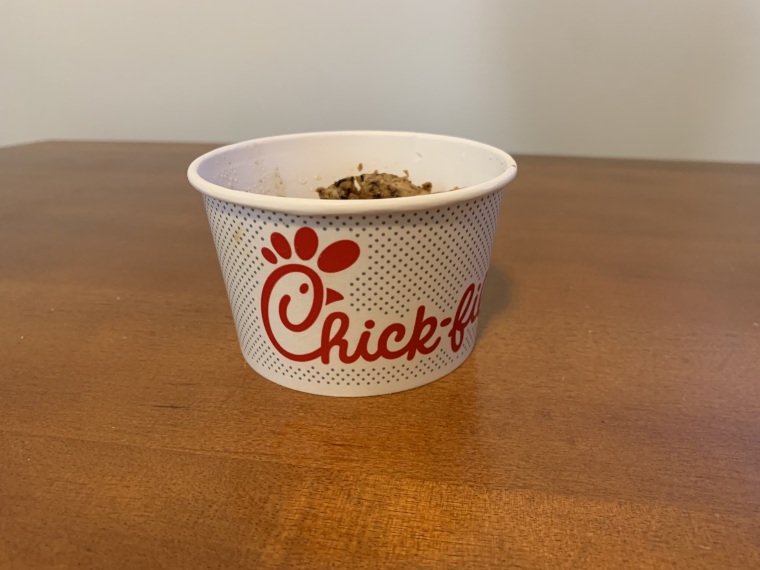
A refeed is a brief period of overfeeding in which caloric intake is raised slightly above maintenance levels, usually by increasing carbohydrate consumption. (26) Simply put: refeeds are more “controlled” cheat days that usually consist of foods already on one’s meal plan. So instead of eating a cheeseburger and french fries, you’d eat more rice with your meals.
Since questions have been raised about the physiological benefits of cheat meals and cheat days, refeeds have become increasingly popular. One study found that three days of eating over your maintenance by 30% increased leptin. However, when the participants lowered their energy intake back to dieting levels, the increase of leptin disappeared almost immediately. (27) Research also shows that physique competitors don’t fully restore leptin until one’s body fat returns to pre-prep levels (28).
Thus, to meaningfully increase leptin levels when dieting, the solution on paper is actually to gain fat. This concept runs completely counter to the primary goal of dieting, so trying to manipulate leptin to facilitate faster fat loss is largely doomed to fail. A better approach is to accept that dieting to get lean is hard and to focus on dieting strategies that get the job done.
Based on the existing research, cheat meals, cheat days, and refeeds do not offer an advantage over consistently staying in deficit continuously. Taking a more consistent dieting approach could, in fact, be superior for two reasons.
Firstly, it generally allows for a better protein balance to aid muscle retention. Secondly, matching a workout regime to a consistent calorie intake is far less complex than trying to adjust for large variations in calorie intake from today.
[Related: Best Macros Calculator]
Diet Breaks
A diet break is a longer-term stray from one’s restricted eating plan. As the name implies, a diet break is when one eats off their macros or meal plan for about one to two weeks. You’ll eat slightly more calories than you were eating prior to the diet break, but won’t gorge yourself on high-fat, calorically dense foods.
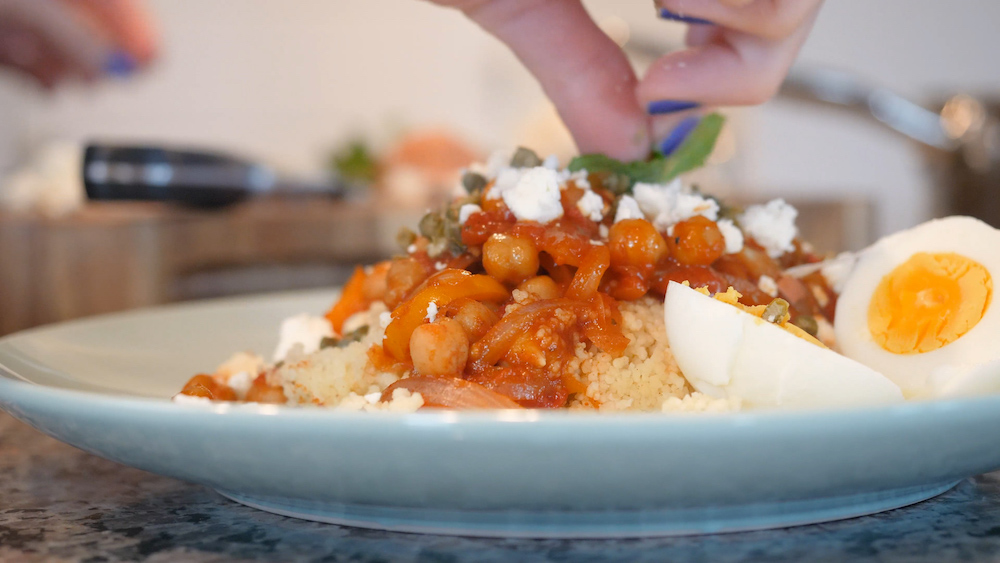
This approach may be beneficial for individuals who have been calorically restricted for longer than 12 weeks and/or are experiencing physiological or psychological side effects from calorie restriction.
Who Are Cheat Meals For?
According to a lot of the research, competitive physique athletes see a lot of success using cheat meals. But physique athletes represent only a very small portion of people who diet. Plus, being effective is not the same as being optimal.
While it is possible to get lean using cheat meals, they are probably best reserved for experienced dieters (e.g., physique competitors) and/or individuals with a hyper-focused short-term goal (e.g., stepping on stage, a photoshoot, landmark event).
The chances are that a cheat meal is only effective for those with lots of experience handling the after-effects of such a meal (including the psychological effects) and for those who have an imminent and important goal to work towards.
[Related: Types of Diets]
How Often Should You Cheat?
From a purely physiological perspective, it’s hard to make a case for using a cheat meal to enhance your body composition.
From a sustainability, psychological, and practical perspective, “cheating” on your diet is inevitable. You are a human, not a robot. Special occasions occur and cravings crop up. Life is to be lived and enjoyed.
Sometimes embracing the human experience and enjoying blowing the diet off is needed. Trying to grind out a strict diet is impossible. Instead of trying and failing to be perfect all the time, it may serve most people better to be consistently good instead of sporadically perfect. Thus, rather than considering the occasional high-calorie indulgence “cheat meals,” just call them life. Enjoy them when the opportunity arises and then move on.
Consider a More Balanced Approach
For the vast majority of people, a balanced approach to life will yield more positive results — including more general enjoyment out of life.
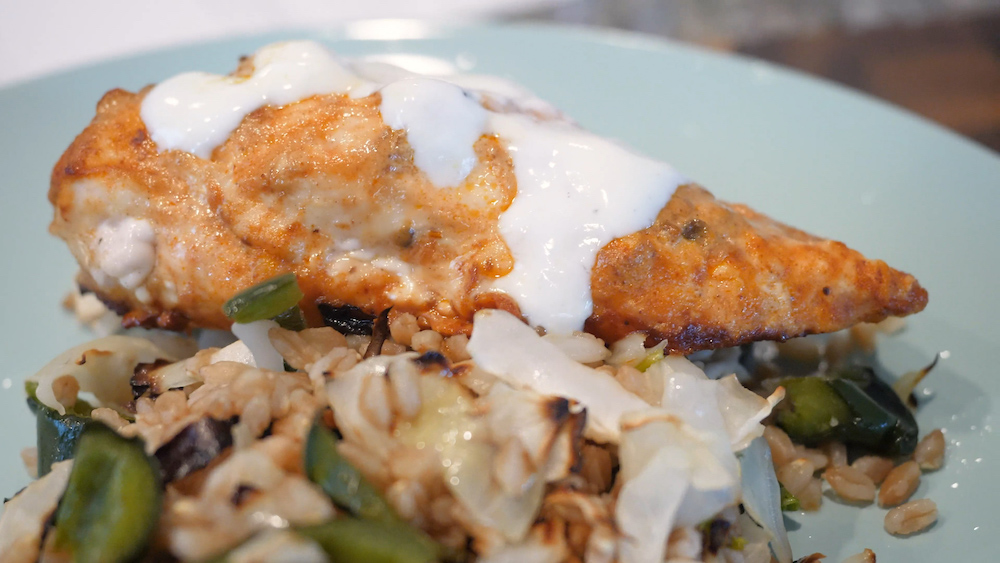
“Aim for a balanced nutrition plan that incorporates all foods in moderation rather than restricting certain foods and consuming them only at cheat meals,” advises Cassandra Padula Burke, RD. “This approach to nutrition promotes a better relationship with food and a more sustainable way to manage weight. Combining a balanced nutrition plan with other lifestyle habits such as regular physical activity is key to supporting long-term weight and health goals.”
[Related: Mediterranean Diet]
Wrapping Up
There’s enough evidence to suggest that hitting your macronutrient goals consistently is the most effective way to succeed when it comes to meeting your weight loss or weight gain goals. You want to find and employ a strategy that can be adhered to consistently.
Cheat meals are not a magic fat loss tool. More seasoned dieters who have high adherence to a program can probably have a cheat meal and bounce back just fine. Many others, however, may fall victim to the urge for more junk.
This isn’t to say you can’t eat tasty food. Fitting a slice of pizza or an ice cream bar into your daily macros is possible.
“Instead of cheat meals, have these favorite foods be included in the diet, but in the right amounts,” says registered dietitian Catherine Gervacio. “It has to be within a person’s caloric and macronutrient requirements. Therefore, instead of labeling foods as ‘good’ or ‘bad,’ it’s more sustainable to aim for balance.”
Gervacio also encourages people to practice mindful eating, regardless of what’s being eaten. “Paying attention to hunger and fullness cues can help prevent overeating. Enjoying food slowly and savoring each bite can help you feel more satisfied with less.”
The upshot? If a cheat meal is likely to trigger a bonanza all-you-can-eat buffet binge then it’s best avoided. If it allows a person to enjoy a celebration or quality time with friends or family and won’t derail them from their goal, it is to be enjoyed.
Cheat meals are not a hack to get shredded by eating whatever you want. They are simply a tool that, more often than not, is best left in the toolbox.
Cheat Meals FAQs
What is a proper cheat meal?
A cheat meal, by definition, can be anything you want it to be. People who utilize cheat meals often go for the foods they enjoy most that are “prohibited” by their typical diet. This often manifests as pizza, ice cream, a burger and fries, and other hyper-palatable foods. There’s no “proper” food to eat during a cheat meal.
What foods to eat on cheat day?
The purpse of a cheat meal is to eat whatever you want. Enjoy your favorite foods, but try to avoid overeating to the point of discomfort.
Do cheat meals make you lose weight?
No, cheat meals are more likely to lead to weight gain than weight loss. In some cases of severe calorie restriction, periods of refeeding or diet breaks can help “reset” a person’s metabolism, eventually allowing them to continue losing weight or maintain their weight with a comparatively higher calorie intake. In most cases, however, a cheat meal just results in overconsumption with no real functional benefit.
Is it better to have a cheat day or cheat meal?
In reality, for most people, forgetting about the concept of cheat meals and cheat days is probably best. This mindset can lead to long-term problems with one’s relationship with food. As far as physiological benefits and drawbacks, a singular cheat meal is likely the less harmful option. A planned refeed or diet break is a better approach for individuals looking to achieve some sort of physiological benefit, such as improved performance.
References
- Dirlewanger, M., Vetta, V., Guenat, E. et al. Effects of short-term carbohydrate or fat overfeeding on energy expenditure and plasma leptin concentrations in healthy female subjects. Int J Obes 24, 1413–1418 (2000). https://doi.org/10.1038/sj.ijo.0801395
- Chappell, A.J., Simper, T. & Barker, M.E. Nutritional strategies of high level natural bodybuilders during competition preparation. J Int Soc Sports Nutr 15, 4 (2018). https://doi.org/10.1186/s12970-018-0209-z
- Escalante, Guillermo & Campbell, Bill & Norton, Layne. (2020). Effectiveness of Diet Refeeds and Diet Breaks as a Precontest Strategy. Strength and Conditioning Journal. Publish Ahead of Print. 1. 10.1519/SSC.0000000000000546. https://www.researchgate.net/publication/339949771_Effectiveness_of_Diet_Refeeds_and_Diet_Breaks_as_a_Precontest_Strategy
- Murray SB, Griffiths S, Hazery L, Shen T, Wooldridge T, Mond JM. Go big or go home: A thematic content analysis of pro-muscularity websites. Body Image. 2016;16:17-20. doi:10.1016/j.bodyim.2015.10.002. https://pubmed.ncbi.nlm.nih.gov/26523689/
- Dornbush S, Aeddula NR. Physiology, Leptin. [Updated 2023 Apr 10]. In: StatPearls [Internet]. Treasure Island (FL): StatPearls Publishing; 2024 Jan-. Available from: https://www.ncbi.nlm.nih.gov/books/NBK537038/
- Ebbeling CB, Swain JF, Feldman HA, et al. Effects of Dietary Composition on Energy Expenditure During Weight-Loss Maintenance. JAMA. 2012;307(24):2627–2634. doi:10.1001/jama.2012.6607. https://jamanetwork.com/journals/jama/fullarticle/1199154
- Dirlewanger M, di Vetta V, Guenat E, et al. Effects of short-term carbohydrate or fat overfeeding on energy expenditure and plasma leptin concentrations in healthy female subjects. Int J Obes Relat Metab Disord. 2000;24(11):1413-1418. doi:10.1038/sj.ijo.0801395. https://pubmed.ncbi.nlm.nih.gov/11126336/
- Murray B, Rosenbloom C. Fundamentals of glycogen metabolism for coaches and athletes. Nutr Rev. 2018;76(4):243-259. doi:10.1093/nutrit/nuy001. https://www.ncbi.nlm.nih.gov/pmc/articles/PMC6019055/
- Knuiman, P., Hopman, M.T.E. & Mensink, M. Glycogen availability and skeletal muscle adaptations with endurance and resistance exercise. Nutr Metab (Lond) 12, 59 (2015). https://doi.org/10.1186/s12986-015-0055-9
- Naderi A, Gobbi N, Ali A, et al. Carbohydrates and Endurance Exercise: A Narrative Review of a Food First Approach. Nutrients. 2023;15(6):1367. Published 2023 Mar 11. doi:10.3390/nu15061367. https://www.ncbi.nlm.nih.gov/pmc/articles/PMC10054587/
- Nakamura, Yuko & Walker, Brian & Ikuta, Toshikazu. (2015). Systematic review and meta-analysis reveals acutely elevated plasma cortisol following fasting but not less severe calorie restriction. Stress. 19. 1-21. 10.3109/10253890.2015.1121984. https://www.researchgate.net/publication/284276855_Systematic_review_and_meta-analysis_reveals_acutely_elevated_plasma_cortisol_following_fasting_but_not_less_severe_calorie_restriction
- Wadden TA, Stunkard AJ, Day SC, Gould RA, Rubin CJ. Less food, less hunger: reports of appetite and symptoms in a controlled study of a protein-sparing modified fast. Int J Obes. 1987;11(3):239-249. https://pubmed.ncbi.nlm.nih.gov/3667060/
- Rossow LM, Fukuda DH, Fahs CA, Loenneke JP, Stout JR. Natural bodybuilding competition preparation and recovery: a 12-month case study. Int J Sports Physiol Perform. 2013;8(5):582-592. doi:10.1123/ijspp.8.5.582. https://pubmed.ncbi.nlm.nih.gov/23412685/
- Pardue A, Trexler ET, Sprod LK. Case Study: Unfavorable But Transient Physiological Changes During Contest Preparation in a Drug-Free Male Bodybuilder. Int J Sport Nutr Exerc Metab. 2017;27(6):550-559. doi:10.1123/ijsnem.2017-0064. https://pubmed.ncbi.nlm.nih.gov/28770669/
- Devitt AA, Mattes RD. Effects of food unit size and energy density on intake in humans. Appetite. 2004;42(2):213-220. doi:10.1016/j.appet.2003.10.003. https://pubmed.ncbi.nlm.nih.gov/15010185
- Martin CK, Anton SD, Han H, et al. Examination of cognitive function during six months of calorie restriction: results of a randomized controlled trial. Rejuvenation Res. 2007;10(2):179-190. doi:10.1089/rej.2006.0502. https://www.ncbi.nlm.nih.gov/pmc/articles/PMC2664681/
- Lieberman HR, Caruso CM, Niro PJ, et al. A double-blind, placebo-controlled test of 2 d of calorie deprivation: effects on cognition, activity, sleep, and interstitial glucose concentrations. Am J Clin Nutr. 2008;88(3):667-676. doi:10.1093/ajcn/88.3.667. https://pubmed.ncbi.nlm.nih.gov/18779282/
- Shukitt-Hale B, Askew EW, Lieberman HR. Effects of 30 days of undernutrition on reaction time, moods, and symptoms. Physiol Behav. 1997;62(4):783-789. doi:10.1016/s0031-9384(97)00236-9. https://pubmed.ncbi.nlm.nih.gov/9284498/
- Davoodi SH, Ajami M, Ayatollahi SA, Dowlatshahi K, Javedan G, Pazoki-Toroudi HR. Calorie shifting diet versus calorie restriction diet: a comparative clinical trial study. Int J Prev Med. 2014;5(4):447-456. https://www.ncbi.nlm.nih.gov/pmc/articles/PMC4018593/
- Schwingshackl L, Zähringer J, Nitschke K, et al. Impact of intermittent energy restriction on anthropometric outcomes and intermediate disease markers in patients with overweight and obesity: systematic review and meta-analyses. Crit Rev Food Sci Nutr. 2021;61(8):1293-1304. doi:10.1080/10408398.2020.1757616. https://pubmed.ncbi.nlm.nih.gov/32363896/
- McCarthy D, Berg A. Weight Loss Strategies and the Risk of Skeletal Muscle Mass Loss. Nutrients. 2021;13(7):2473. Published 2021 Jul 20. doi:10.3390/nu13072473. https://www.ncbi.nlm.nih.gov/pmc/articles/PMC8308821/
- Campbell BI, Aguilar D, Colenso-Semple LM, et al. Intermittent Energy Restriction Attenuates the Loss of Fat Free Mass in Resistance Trained Individuals. A Randomized Controlled Trial. J Funct Morphol Kinesiol. 2020;5(1):19. Published 2020 Mar 8. doi:10.3390/jfmk5010019. https://www.ncbi.nlm.nih.gov/pmc/articles/PMC7739314/
- Deighton K, King AJ, Matu J, et al. A single day of mixed-macronutrient overfeeding does not elicit compensatory appetite or energy intake responses but exaggerates postprandial lipaemia during the next day in healthy young men. Br J Nutr. 2019;121(8):945-954. doi:10.1017/S0007114519000205. https://pubmed.ncbi.nlm.nih.gov/30696504/
- Kolaczynski JW, Ohannesian JP, Considine RV, Marco CC, Caro JF. Response of leptin to short-term and prolonged overfeeding in humans. J Clin Endocrinol Metab. 1996;81(11):4162-4165. doi:10.1210/jcem.81.11.8923877. https://pubmed.ncbi.nlm.nih.gov/8923877/
- Kolaczynski JW, Considine RV, Ohannesian J, et al. Responses of leptin to short-term fasting and refeeding in humans: a link with ketogenesis but not ketones themselves. Diabetes. 1996;45(11):1511-1515. doi:10.2337/diab.45.11.1511. https://pubmed.ncbi.nlm.nih.gov/8866554/
- Trexler ET, Smith-Ryan AE, Norton LE. Metabolic adaptation to weight loss: implications for the athlete. J Int Soc Sports Nutr. 2014;11(1):7. Published 2014 Feb 27. doi:10.1186/1550-2783-11-7. https://pubmed.ncbi.nlm.nih.gov/24571926/
- Chin-Chance C, Polonsky KS, Schoeller DA. Twenty-four-hour leptin levels respond to cumulative short-term energy imbalance and predict subsequent intake. J Clin Endocrinol Metab. 2000;85(8):2685-2691. doi:10.1210/jcem.85.8.6755. https://pubmed.ncbi.nlm.nih.gov/10946866/
- Hulmi JJ, Isola V, Suonpää M, et al. The Effects of Intensive Weight Reduction on Body Composition and Serum Hormones in Female Fitness Competitors. Front Physiol. 2017;7:689. Published 2017 Jan 10. doi:10.3389/fphys.2016.00689.https://www.ncbi.nlm.nih.gov/pmc/articles/PMC5222856/